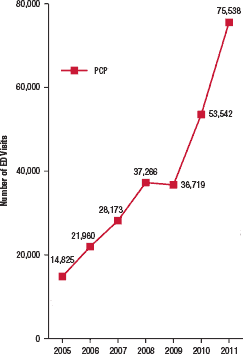
The plague that spread across America in the 70’s is not gone, and a new SAMHSA study suggests that it might be making a rebound. PCP, angel dust, and wet are just a few of the terms used to describe recreational phencyclidine.
Legally used in veterinarian clinics as an animal tranquilizer, recreational users indulge to achieve ‘out of body’ hallucinogenic experiences. Unlike other hallucinogenic drugs like MDMA or LSD, PCP is known to lead to hostile behavior and extreme violence. Severe cases can even result in seizures and coma.
The SAMHSA’s Dawn Report, which tracks drug related emergency department visits, reports a 400% increase in such visits between 2005 and 2011. This increase was lead jointly by male and female users, mostly among patients aged 25 to 34. In this age group alone, visits increased 518%.
Especially concerning employers in the New York City area, New York and Chicago were the top two metropolitan areas reporting an increase. Combined with the prime working age of 25-34, this presents a dangerous risk to the city workplace. Whereas the least desirable drugs such as meth were seen as a distant threat, PCP is now a real reality to combat.
SAMHSA encourages all private employers to implement and enforce a drug-free workplace through pre-employment, random, and annual drug testing. Although employers may decide on the substances to test for, the top five are known as a five panel and includes phencyclidine. Maintaining a PCP free office is an important priority for all workplaces and communities.
Mobile Health is a New York provider of drug testing services for employers of all size and industries. Our six medical centers are located in every borough and Long Island, all located near mass transit. For more information on implementing a drug testing program, contact Mobile Health to learn more.
